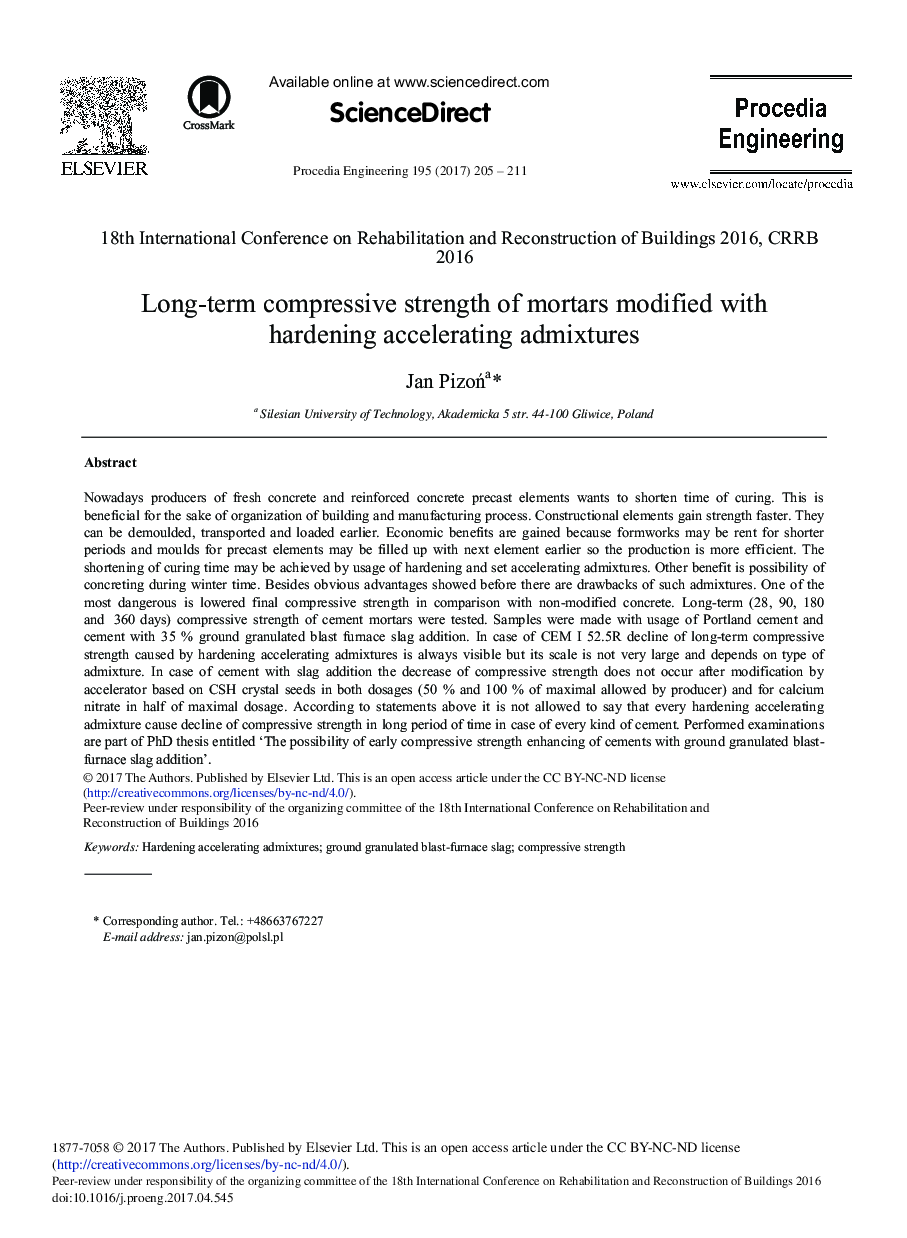| Article ID | Journal | Published Year | Pages | File Type |
|---|---|---|---|---|
| 5026863 | Procedia Engineering | 2017 | 7 Pages |
Nowadays producers of fresh concrete and reinforced concrete precast elements wants to shorten time of curing. This is beneficial for the sake of organization of building and manufacturing process. Constructional elements gain strength faster. They can be demoulded, transported and loaded earlier. Economic benefits are gained because formworks may be rent for shorter periods and moulds for precast elements may be filled up with next element earlier so the production is more efficient. The shortening of curing time may be achieved by usage of hardening and set accelerating admixtures. Other benefit is possibility of concreting during winter time. Besides obvious advantages showed before there are drawbacks of such admixtures. One of the most dangerous is lowered final compressive strength in comparison with non-modified concrete. Long-term (28, 90, 180 and 360 days) compressive strength of cement mortars were tested. Samples were made with usage of Portland cement and cement with 35% ground granulated blast furnace slag addition. In case of CEM I 52.5R decline of long-term compressive strength caused by hardening accelerating admixtures is always visible but its scale is not very large and depends on type of admixture. In case of cement with slag addition the decrease of compressive strength does not occur after modification by accelerator based on CSH crystal seeds in both dosages (50% and 100% of maximal allowed by producer) and for calcium nitrate in half of maximal dosage. According to statements above it is not allowed to say that every hardening accelerating admixture cause decline of compressive strength in long period of time in case of every kind of cement. Performed examinations are part of PhD thesis entitled 'The possibility of early compressive strength enhancing of cements with ground granulated blast-furnace slag addition'.
